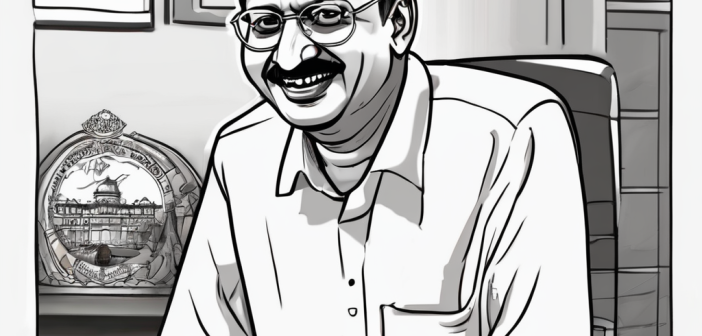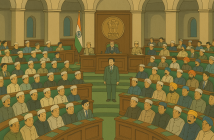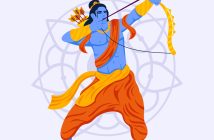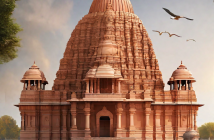In an analysis that goes beyond the headlines, we delve into Arvind Kejriwal’s recent arrest, examining its potential effects on the AAP’s prospects in the upcoming 2024 Lok Sabha elections, its broader impact on India’s democratic fabric, and the role of media and civil society in shaping the narrative.
The recent arrest of Arvind Kejriwal, the leader of the Aam Aadmi Party (AAP), has sent ripples through the Indian political landscape, especially in the context of the upcoming 2024 Lok Sabha elections. This event does not merely stand as an isolated incident. Still, it unfolds a series of multifaceted implications that are likely to affect the electoral prospects of AAP and the broader dynamics of Indian politics. The situation holds a mirror to the state of democratic principles and practices in India, stirring discussions about civil liberties, political discourse, and the rule of law. This analysis seeks to explore the depth and breadth of these implications, the international reactions it has garnered, and the historical context to understand their significance fully.
Implications for AAP and the 2024 Lok Sabha Elections
The arrest of a prominent political leader like Kejriwal, known for his anti-corruption stance and efforts to bring transparency to governance, has immediate repercussions for his party. Under Kejriwal’s leadership, AAP has carved a niche, appealing to a section of the electorate that values integrity and accountability in public administration. The incident could potentially galvanize the AAP’s support base, rallying them against what they perceive as a political vendetta. However, it could also deter undecided voters, who may view the arrest as a sign of instability or legal misconduct by the party’s leader. The party’s ability to navigate this situation and frame the narrative that resonates with the electorate will be critical in determining its performance in the upcoming elections.
The Broader Political Dynamics
The arrest could inadvertently benefit the Bharatiya Janata Party (BJP) and other political entities by diverting public attention from their challenges and shortcomings. It allows rival parties to doubt the AAP’s credibility and governance model, potentially undermining its appeal to the electorate. However, this situation also presents a double-edged sword; excessive focus on undermining AAP could lead to perceptions of political bullying, thereby eliciting sympathy for Kejriwal and his party.
Ramifications on Democratic Principles
This episode raises significant concerns regarding the state of democracy in India. The arrest of a political leader, especially one known for his critical stance against corruption and advocacy for transparency, poses questions about civil liberties and the freedom of political expression. It challenges the delicate balance between law enforcement and political freedom, potentially setting a precedent for how political opposition is treated. How this situation unfolds could serve as a litmus test for India’s commitment to democratic principles, the rule of law, and the protection of civil liberties.
International Reactions and Global Perceptions
The international community’s reaction to this event is pivotal in shaping global perceptions of India’s political climate. Democratic nations worldwide are likely to scrutinize arrests, evaluating them against human rights, political freedom, and democratic governance. A negative perception could strain India’s relations with these countries, affecting diplomatic ties and possibly economic relations. The global narrative around this incident will depend significantly on the Indian government’s transparency, the legal proceedings’ fairness, and the media’s role in covering these aspects.
The Role of Media and Civil Society
The media plays a crucial role in shaping public opinion on this issue. Its coverage can influence perceptions, sway public sentiment, and affect the political discourse surrounding the arrest. The narrative set by the media can also inspire the mobilization of civil society, potentially leading to protests, public debates, and a demand for accountability and transparency from the government. How civil society responds to this situation can further indicate the health of democratic engagement and political activism in India.
Historical Context and Long-term Implications
Drawing parallels with historical political arrests in India, one can glean insights into the potential outcomes and long-term implications of Kejriwal’s arrest. History shows that such incidents have, at times, bolstered political movements, rallying public support against perceived injustices. The long-term consequences of this event could thus go beyond the immediate political fallout, affecting the fabric of Indian democracy, the norms of political engagement, and the mechanisms of accountability and transparency in governance.
In conclusion, the arrest of Arvind Kejriwal is more than a mere political skirmish; it is a moment of reckoning for Indian democracy, a test of its institutions, and a reflection of its political culture. As India moves closer to the 2024 Lok Sabha elections, the unfolding of this event will undoubtedly play a critical role in shaping the electoral landscape, the state of democracy, and the nation’s international image. The stakes are high, and the implications are far-reaching, underscoring the need for a balanced, informed, and conscientious approach to navigating this challenging terrain.




